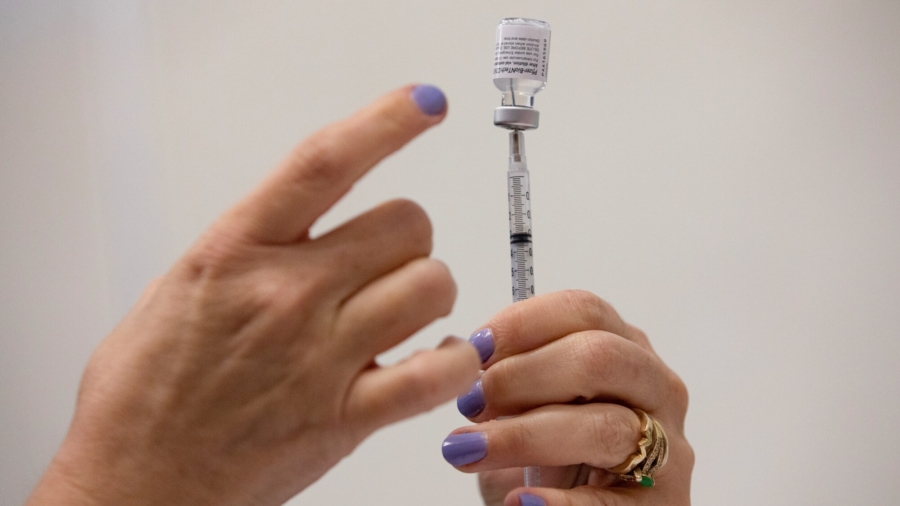U.S. drug regulators on Thursday authorized booster doses of Pfizer’s COVID-19 vaccine for 16- and 17-year-olds.
The Food and Drug Administration (FDA) cited in its announcement data showing the vaccine becomes significantly less effective over time.
“Since we first authorized the vaccine, new evidence indicates that vaccine effectiveness against COVID-19 is waning after the second dose of the vaccine for all adults,” Dr. Peter Marks, a top FDA official, said in a statement.
“A single booster dose of the vaccine for those vaccinated at least six months prior will help provide continued protection against COVID-19 in this and older age groups,” he added.
The decision drew immediate pushback, with experts noting that young, healthy people are at low risk of severe COVID-19 and at elevated risk of heart inflammation following vaccination.
“I understand that the third dose will boost their level of neutralizing antibiotics. But if the goal of this vaccine is protection against serious illness—which is a reasonable goal and it’s the goal for every other vaccine—two doses already do that. So why do we need a third dose? Where’s the evidence that a third dose will protect children to a greater extent against serious illness?” Dr. Paul Offit, director of the Vaccine Education Center, professor of pediatrics at Children’s Hospital of Philadelphia, and a member of the FDA’s vaccine advisory panel, told The Epoch Times.
“And that evidence has to be there because the 16- and 17-year-old is at highest risk of myocarditis,” Offit added.
Dr. Mike Saag said he hasn’t seen specific data for the age group but that the move makes sense given the waning effectiveness of vaccines.
“I think that all individuals, regardless of age, will ultimately receive ‘booster’ shots 6 months after completion of the initial 2-dose vaccination. The biology and epidemiologic data support this. What remains unknown is how long protective immunity will last after receiving the third shot,” Saag, a professor at the University of Alabama at Birmingham’s Department of Medicine, told The Epoch Times in an email.
Data from approximately 200 people who got a Pfizer booster was used as evidence for the authorization, the FDA said.
Real-world data that has become available on the post-vaccination conditions “enabled the FDA to reassess the benefits and risks of the use of the vaccine in a wider population” and the agency determined the benefits of a booster outweigh the risks.
The FDA did not immediately provide the data and Offit said he was not aware of such data.
Pfizer CEO Albert Bourla cheered the news. “While new variants, including Omicron, emerge across the globe, we believe that the best way to minimize the spread of COVID-19 and any future variants is getting all eligible people fully vaccinated with the first two dose series and a booster dose as recommended,” he said in a statement.
The FDA authorized the boosters without input from its vaccine advisory panel. It also avoided convening the panel before authorizing boosters for everybody 18 and older.
There would have been no benefit from soliciting advice from the committee, the FDA said.
The Centers for Disease Control and Prevention (CDC) now must decide whether the 16- and 17-year-olds “may” or “should” get a third Pfizer dose.
The CDC did not immediately respond to a request for comment.
From The Epoch Times


